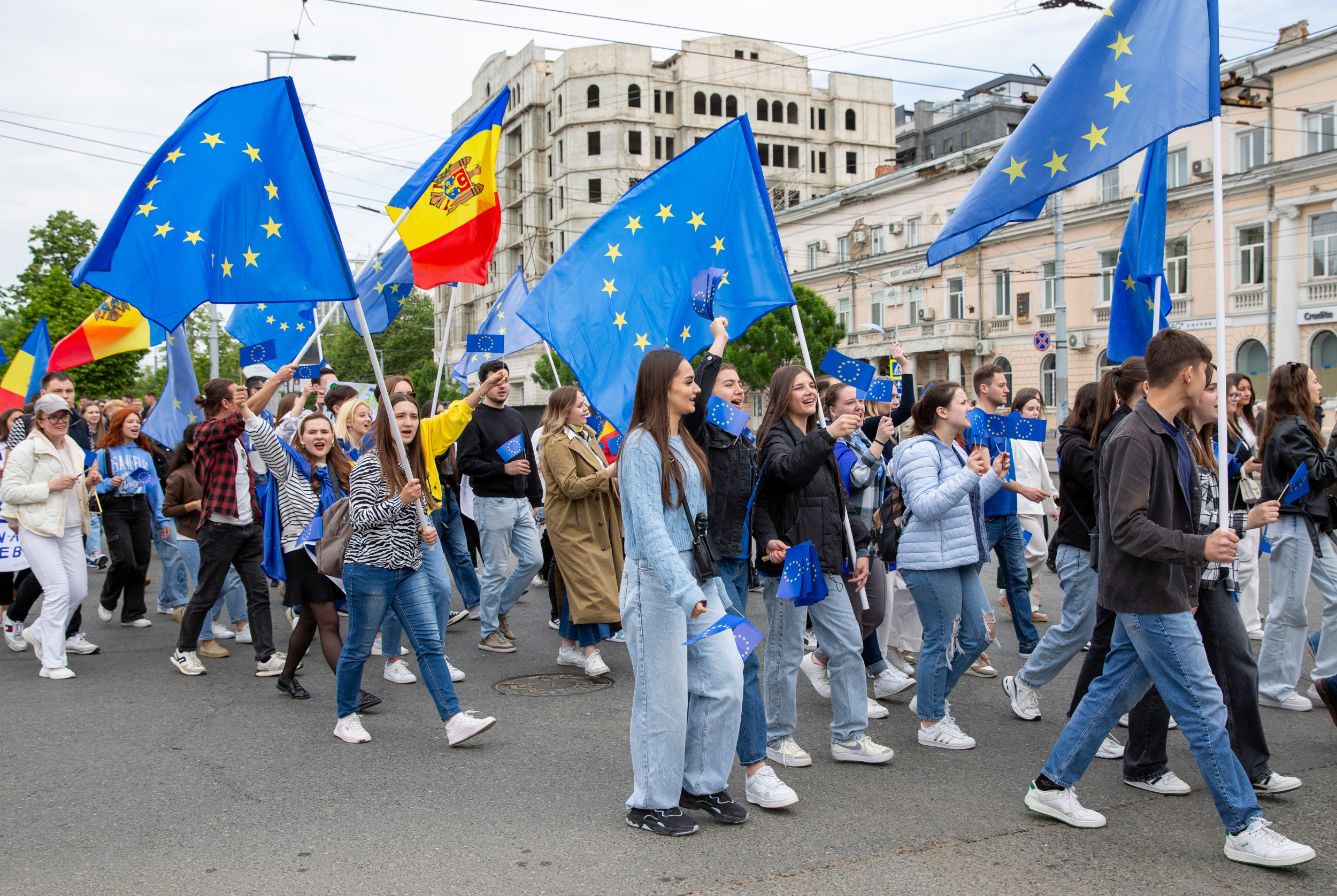Moldova recently held a referendum on EU membership, which passed with a slender margin of 50.46%. This outcome is celebrated as a win against Russian influence, though ongoing allegations of Moscow’s meddling could complicate future relations with Brussels.
Before the final vote count, pro-Western president Maia Sandu called an urgent press conference, claiming that foreign forces had attempted to sway the referendum using financial incentives and propaganda. The vote gained momentum thanks to support from Moldova’s overseas diaspora.
However, the referendum was marred by accusations that Russia had attempted to manipulate the results through vote-buying and creating a climate of fear about EU membership via social media campaigns. Romanian MEP Siegfried Mureșan labeled the outcome “a defeat for Russia,” but experts caution that the Kremlin will likely continue exerting its influence throughout Moldova’s EU accession journey.

ELENA COVALENCO/Getty Images
Despite this positive stride towards EU membership, significant obstacles remain. Moldova must address unresolved issues, including the status of Transnistria, a breakaway region hosting Russian troops, and Gagauzia, which enjoys considerable autonomy. Jeremy Holt from S-RM noted that these factors will likely weigh heavily in the EU’s decision-making, particularly given rising Russian activities throughout Europe.
Marta Mucznik of the International Crisis Group emphasized the challenges that Brussels faces in admitting post-Soviet nations, particularly against the backdrop of the ongoing conflict in Ukraine. She pointed out that the EU’s accession process requires unanimous approval from all member states, complicating matters further due to potential public unease regarding Russian interference.

DANIEL MIHAILESCU/Getty Images
Reducing Russian influence in Moldova is likely to take time, with many citizens remaining resistant to EU membership. Moreover, pro-Russian narratives continue to thrive in regions like Transnistria and Gagauzia. Russian officials, such as Maria Zakharova and Dmitry Peskov, have dismissed the referendum results, claiming the vote lacked genuine support and accusing Moldova of suppressing opposition voices.
With the second round of the presidential election set for November 3, Sandu, who secured 42% in the first round, will face off against pro-Russian candidate Alexandr Stoianoglo. The outcome of this election could significantly influence Moldova’s path toward EU integration.
